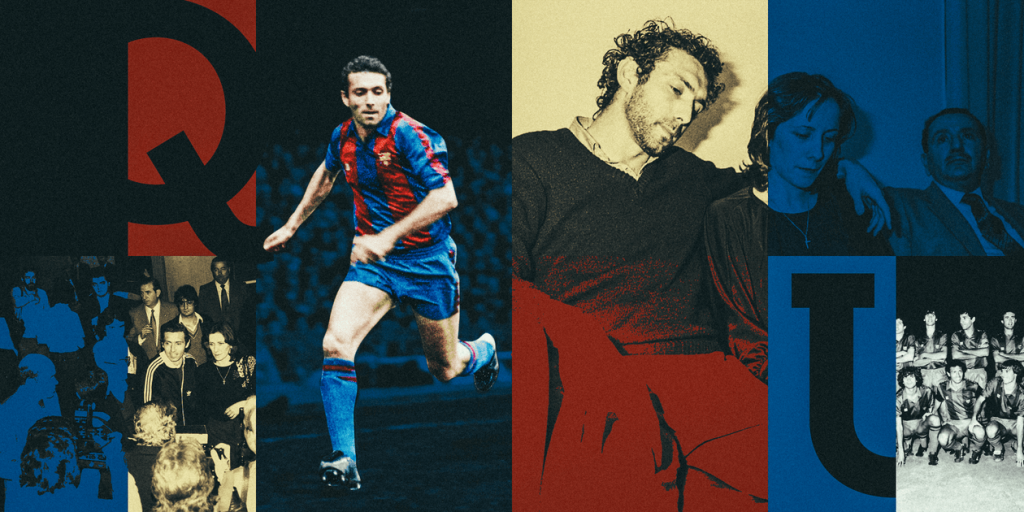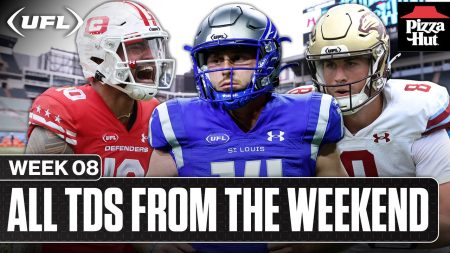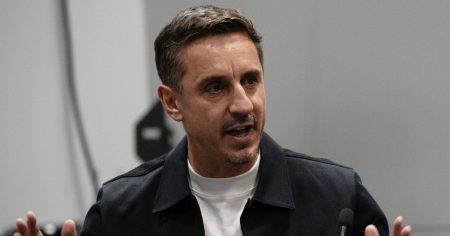Summarize this content to 2000 words in 6 paragraphs Friday, November 29, 2024, marks the 125-year anniversary of the formation of FC Barcelona.To mark the occasion, The Athletic is running a series of pieces, celebrating the people and the moments who have helped make the club what it is today.We have told you about the story of Joan Gamper, the man who founded the club, and run through some of the most significant numbers in Barca’s history. Now, we look at the scarcely believable story of when their star striker, Quini, was kidnapped in 1981…“Quini’s wife called me at four o’clock in the morning. She told me he hadn’t come home that night and that she hadn’t heard anything from him.”Former Barcelona president Joan Gaspart is talking to The Athletic about one of the most unusual incidents in the club’s history.It was Sunday, March 1, 1981, and Gaspart was vice-president. Barca had beaten Hercules 6-0 at the Camp Nou and La Liga’s top scorer Quini had provided two goals. Barca looked on course for the Spanish title — something that had not happened since 1973-74, in Johan Cruyff’s playing days and when Quini was scoring goals for Sporting Gijon instead.There was a sense of euphoria in the city and among the players, who decided to go for dinner at a restaurant near the ground.It was the restaurant Can Fuste, a 15-minute walk from Camp Nou. Everyone was waiting for the then 31-year-old star striker Quini, full name Enrique Castro Gonzalez — but he never arrived.“There were seven or eight of us,” Carles Rexach — one of the players in the squad tells The Athletic. “(Barca centre-back and Quini’s close friend Jose Ramon) Alexanko met us and said he didn’t know where he was or where he had gone.”
Quini was one of Spanish football’s most famous players in the 1980s (FC Barcelona)The last anyone had heard from Quini was a TV interview in which he spoke about their upcoming game against Atletico Madrid. Atletico were in first place, two points ahead of Barca and the game was crucial.Mari Nieves, Quini’s wife, had flown back from Gijon that afternoon with her two children, as she did on many weekends. After the match, her husband stopped by the house to pick up his things before getting in his Ford Granada to head to Barcelona airport to pick her up.“His wife (when he did not appear at the airport) had called several hospitals, police stations or any place where they might know something,” Gaspart says. “He didn’t show up. Nobody knew anything. We went to his house at five or six o’clock in the morning thinking, ‘Where could he be?’”Gaspart, then-Barca president Josep Lluis Nunez and Alexanko spent the night at Nieves’ house and immediately called the police.The next day, the report of Quini’s disappearance became official. The three men stayed with Nieves until she received a call that began to give her answers.The case caused a stir across the country. It was reported in all the major media outlets and rumours began to spread about whether the Basque separatist group ETA had been involved after terrorising Spain with a number of attacks.Nieves received the first of 21 calls from her husband’s kidnappers. It was not ETA but three people with no criminal record and no jobs who had tried to solve their financial problems by kidnapping one of the country’s biggest football stars and demanding a large ransom.“The news spread like wildfire all over Barcelona,” Josep Maria Minguella, a former agent and a figure who has been closely linked to the club over the years, tells The Athletic.“There was a lot of consternation. With ETA active, there were a lot of kidnappings at the time, but it had never happened to a player. It was reminiscent of what had happened to (Real Madrid legend Alfredo) Di Stefano a few years earlier (when he was kidnapped by Venezuelan guerrillas in 1963).”As Rexach puts it 43 years later, “At first we thought it was a joke because it was unimaginable.”On his way home from the airport, Quini had stopped to fill up his car when the three men suddenly assaulted him and forced him into the vehicle at gunpoint. They later abandoned the car and put Quini in a hood and wooden crate in a van and drove to Zaragoza, around a four-hour drive to the west of Barcelona.There they transferred him to a hideout, where he spent 23 days locked up.Quini had been top scorer five times in La Liga and had scored 73 goals across four seasons with Barcelona.“He was one of the best players in Spain and was constantly in the media spotlight,” Rexach says. “They knew kidnapping him was going to have a big impact.”“He was such a charismatic man and he was good to people,” Juan Carlos Perez Rojo, a player who was in the ‘B’ team but trained with Barca’s senior side, tells The Athletic. “They knew everyone was going to step up and give him the money he needed.” Rojo and Quini became friends some time after the kidnapping and he is into his 46th year at Barca, where he works as a scout.“As a person he was very simple, a good person, kind,” says Minguella, who helped sign Quini from Sporting Gijon. “He didn’t deserve all the things that happened to him and his family. It’s one of those moments when you realise that life can be unfair.”
Quini with Nieves on the day of his release (Xavier Bonilla/NurPhoto via Getty Images)It later emerged the kidnappers’ main target had been the then-Barcelona coach Helenio Herrera. When they found out he had a cold, they changed their plans as they feared he might die during the kidnapping.In the days that followed, the police worked in secrecy.“There was a lot of upheaval,” says Minguella. “The police controlled the situation and didn’t want too many people to intervene.”“The police didn’t want people to get in the way, even if they wanted to help,” adds Rexach. “So they just let Alexanko be the one to help.”Barcelona asked La Liga to postpone the match against Atletico that weekend. The Spanish top flight denied that request, Barca played and lost 1-0 at the Vicente Calderon, Atletico’s former home. The German midfielder Bernd Schuster, who threatened not to play, blamed Nunez and Herrera for the match going ahead.“There were people who didn’t want to play until they found him and there was a bit of a struggle because the coach thought we had to play even if he wasn’t there,” says Rexach. “It was complicated.”Barca played two more games with Quini still missing, losing 2-1 to Salamanca and drawing 0-0 with Real Zaragoza. They would finish four points behind champions Real Sociedad in fifth place.“That year we didn’t win La Liga because we spent those three weeks just thinking about Quini,” Rexach says.Meanwhile, the police continued to do their job. As calls from the kidnappers were made from phone boxes, they asked Telefonica, Spain’s leading telecoms company which owned them, to cooperate.“The kidnappers went completely unnoticed,” Juan Martinez Ruiz, one of the 20 officers in charge of the case, later told Spanish magazine Libero. “That was the main reason it took so long to locate them. They had never broken a dish, they had no previous convictions, they were not related to criminals… They were absolutely normal.”The police issued a statement appealing for the public to help and had to deal with an avalanche of false leads. Telefonica had trouble identifying the origin of the calls.In one of their calls, the kidnappers told Nieves they were nervous because of how much Quini ate, given they no longer had enough money to buy sandwiches. They were demanding 100 million pesetas for his ransom (worth around €600,000 today), a figure that had risen from the original 70 million pesetas.In one of the attempts to pay the kidnappers, the police asked Alexanko to go to La Jonquera, a Catalan town close to the French border, with a briefcase full of banknotes. The kidnappers asked him to cross the border, but the police refused because the French authorities would have arrested him on the spot.On March 20, the three men asked the money to be paid into a Credit Suisse bank account.“Barca were looking for solutions because the kidnappers were very absent-minded,” Minguella says. “Those who kidnapped him did not have very clear ideas about what ransom they wanted to ask for and were changing their strategy.“Nunez’s secretary called me to find out if I had any way of getting money in Switzerland, where the kidnappers asked for the money to be deposited. I was doing business in Luxembourg and Switzerland and I had money there. I said yes and agreed to help with the payment.”The bank account was in the name of one of the kidnappers, Victor Miguel Diaz Esteban. The Swiss police worked closely with their Spanish counterparts to track him down. Diaz Esteban went to Switzerland to withdraw one million pesetas in U.S. dollars on March 24; within 18 hours, the police had arrested him after finding the hotel where he was staying and following his steps when he left for the airport to catch a plane to Paris. He was interrogated and confessed to holding Quini in a basement in Zaragoza.In less than a day, the police released him and arrested a second kidnapper.Quini later told friends this was when he was most afraid because he heard a lot of noise and thought the kidnappers would kill him. But on the night of March 25, radios across Spain announced he had been freed.When he arrived in Barcelona, a huge crowd was waiting for him at the police station — Quini had to go out to greet them.
The striker prepares to give a press conference after his release (FC Barcelona)“When he came out he was in a very bad state, you could see it,” Rexach says. “All I know is that I gave him a hug. He was hidden in a place with no light for 23 days. It’s something you wouldn’t wish on your worst enemy.”“He wanted to play and get back to normal as soon as possible,” Rojo says. “They gave him psychological support, I heard about it from team-mates some time later.”Quini returned for the last four games of the La Liga season, playing again barely a week after his release, and was received with full honours at every ground he played at. He played 90 minutes in each of his first three league games after his return — scoring twice in a 5-2 win against Almeria — and still finished as La Liga’s top scorer with 20 goals. He also scored in both legs of the Copa del Rey semi-final and twice in the final against his boyhood side Sporting Gijon in the final as Barca lifted Spain’s national cup.“On every pitch, when they said Quini’s name, there was five minutes of applause,” Rojo says. “He had a spectacular reception.”The three kidnappers were sentenced to 10 years in prison and given a five million peseta fine.“They were simple people, without great possibilities,” Quini told a press conference after his release. “They fed me with sandwiches because they couldn’t afford any more.”“There were team-mates who made jokes after that,” Rojo says. “Sometimes, when we were in hotels after dinner when you go to the room, there were team-mates who would go into his wardrobe to scare him when he arrived.”Quini spent three more seasons at Barcelona, finishing with 73 goals in 141 appearances for the Catalans. He then returned to Sporting Gijon in 1984, where he spent the last three years of his playing career. He worked as a coach, team delegate and director of institutional relations for them.The kidnapping had a very real impact on Quini, who died of a heart attack aged 68 in 2018. He was given an emotional tribute by the Camp Nou, with a huge tifo unfurled that read ‘Quini, sempre recordat’ — Quini, always remembered.
The Camp Nou tribute to Quini after his death (Xavier Bonilla/NurPhoto via Getty Images)“This affected him a lot throughout his life,” Rexach says. “He spent many days locked underground in a very small cell. He didn’t want to talk about it because every time he did, he relived the trauma.“He did tell me that when he was fed by the kidnappers he sometimes kept (the food) to himself. He thought that if they hunted them down and killed them, it would be impossible for anyone to find him there and he would starve to death.“He had those 23 days in his head until the day he died. People think he forgot it quickly, but he didn’t. When someone would ask him a question (about it), you’d see him change the subject very quickly.“It’s the most unbelievable thing that has happened to Barca in its history.”(Top photos: Getty Images; design: Eamonn Dalton)















